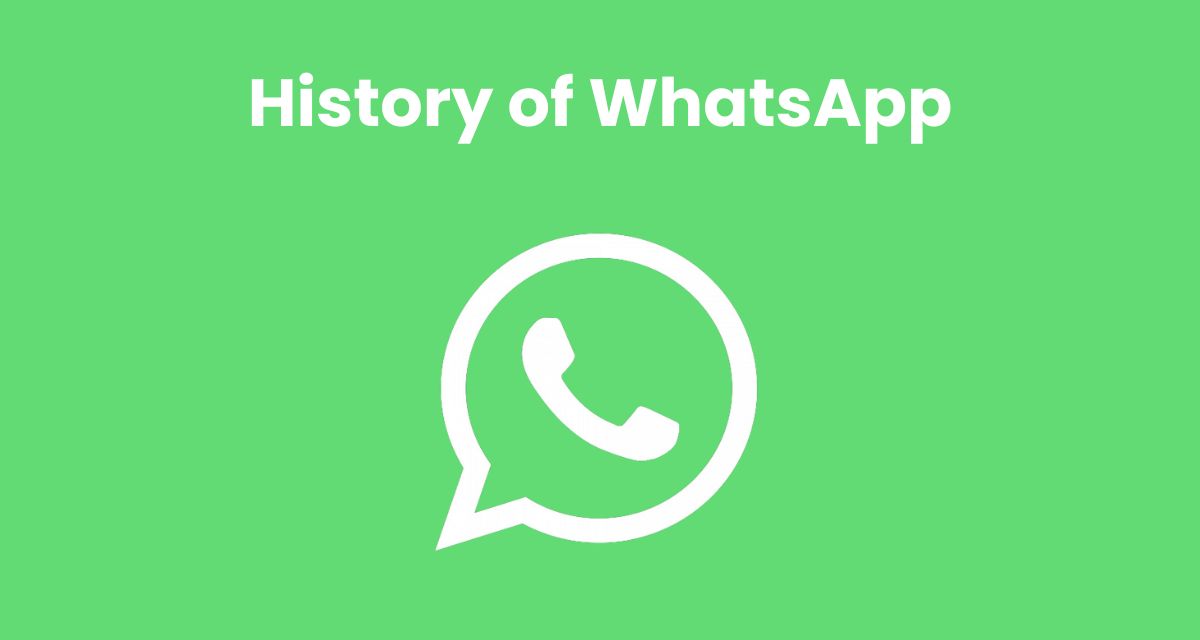Introduction
In today's interconnected world, instant messaging has revolutionized how we communicate. Among the pioneers of this revolution stands WhatsApp, a platform that has transformed from a modest idea into a global phenomenon. This article delves into the fascinating journey of WhatsApp, tracing its origins, key milestones, and its impact on communication worldwide.
The Founding Vision: Birth of WhatsApp
WhatsApp was founded in 2009 by Jan Koum and Brian Acton, former employees of Yahoo!. Their vision was simple yet powerful: to create a messaging app that would be fast, reliable, and easy to use. Koum and Acton believed in the importance of providing a platform that prioritized user privacy and security, which would later become foundational principles of WhatsApp.
The Early Days: Building the Foundation
In its early stages, WhatsApp operated with a small team and focused on developing a messaging service that could function across different mobile operating systems. This versatility was crucial in attracting a diverse user base early on.
Key Features and Innovations
WhatsApp differentiated itself by offering several innovative features. One of its standout features was its use of the internet to send messages instead of traditional SMS, allowing for free messaging between users regardless of their location. This approach proved to be particularly appealing in regions where SMS charges were high.
Timeline of Major Features:
- 2010: Introduction of group chat functionality.
- 2011: Addition of voice messaging feature.
- 2013: Implementation of end-to-end encryption for enhanced security.
- 2014: Acquisition by Facebook, which provided resources for further growth and development.
Growth and Global Expansion
WhatsApp's user base grew rapidly, reaching millions of users globally within a short span. Its popularity surged in emerging markets where affordable smartphones and internet connectivity were becoming more accessible. The app's straightforward interface and reliable performance further fueled its adoption worldwide.
Impact on Communication
WhatsApp fundamentally changed how people communicated by making real-time messaging seamless and cost-effective. It facilitated instant communication between individuals, groups, and even businesses, fostering new ways of interaction and collaboration.
WhatsApp Today: Continuing Evolution
As of today, WhatsApp continues to evolve, introducing new features such as voice and video calls, status updates, and business tools. These enhancements aim to cater to the diverse needs of its user base while maintaining its commitment to privacy and security.
Conclusion
The history of WhatsApp is a testament to the transformative power of innovation in communication technology. From its humble beginnings as a messaging app to its status as a global leader, WhatsApp has shaped how billions of people connect and communicate. As technology continues to advance, WhatsApp remains at the forefront, adapting and innovating to meet the evolving needs of its users worldwide.
Also read WhatsApp vs Telegram
FAQs About WhatsApp
- Is WhatsApp free to use? Yes, WhatsApp is free to download and use for sending messages and making calls over the internet. However, data charges may apply depending on your internet service provider.
- How secure is WhatsApp? WhatsApp employs end-to-end encryption, which ensures that only the sender and recipient can read messages. This provides a high level of security and privacy for users.
- Can WhatsApp be used for business purposes? Yes, WhatsApp offers business solutions such as WhatsApp Business, which provides tools for small and medium-sized enterprises to interact with customers effectively.
- What are WhatsApp Status updates? WhatsApp Status allows users to share text, photos, videos, and GIFs that disappear after 24 hours. It's similar to stories on other social media platforms.
- Who owns WhatsApp? WhatsApp was acquired by Facebook in 2014. It operates as a subsidiary but maintains its own brand and development team.





Comments